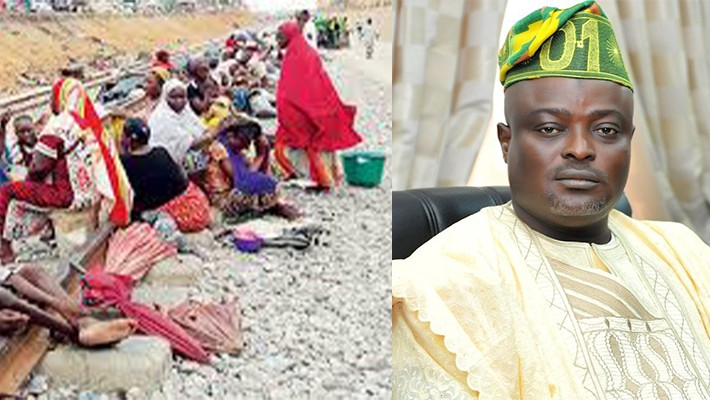The Lagos State House of Assembly is considering passing a law to regulate alms begging in the state. Speaker Mudashiru Obasa mentioned this during an interview at the launch of the Ibile Muslim Community Zakat and Sadaqah Foundation in Lagos, which was sponsored by Lotus Bank. The foundation aims to empower less privileged Muslims and alleviate poverty by promoting Zakat, Sadaqah, and Waqf.
Obasa emphasized the need for such legislation to enable the state government and foundations like the Ibile Muslim Community Zakat and Sadaqah Foundation to regulate aid soliciting effectively.
The proposed law would ensure that donations reach the needy without them having to beg on the streets, addressing the increasing number of beggars in Lagos.
“We are looking at how we can manage such situations to stop beggars from parading the streets of Lagos begging for alms.
“Following such legislation, anyone caught begging on the streets or aiding such, particularly among children, would also be sanctioned according to the law,” Mr Obasa said.
Speaking on the foundation’s launch, Mr Obasa highlighted the benefits of Zakat, which helps both payers and beneficiaries by eradicating poverty.
“It is important for anyone blessed by God to reach out to the less privileged.
“This should start from the immediate family and extend to every other member of society.
“The essence is to make everyone equal, or at least to move people from poverty and make them feel comfortable,” he added.
Sheikh Sulayman Nolla, chairman of the board of trustees for the Ibile Muslim Community Zakat and Sadaqah Foundation, emphasised the foundation’s goal of unifying all Muslims in Lagos.
Mr Nolla, also the grand chief imam of Lagos, noted that the foundation serves all, regardless of religious background, and aims to bridge the gap between the rich and the poor by pooling resources.
Kafilat Araoye, managing director of Lotus Bank, stated that the bank is supporting the foundation financially, technically, and administratively, ensuring adherence to Sharia and Islamic finance principles.
Mr Araoye stressed the need for permanent solutions to poverty rather than temporary palliatives, given the country’s current economic realities.
Zakat is the third pillar of Islam, requiring eligible Muslims to donate a portion of their wealth annually to aid the poor.
It is typically 2.5 per cent of a Muslim’s total savings and wealth above a minimum amount, or “nisab,” each lunar year.
Sadaqah is a voluntary charitable act, while Waqf is an Islamic endowment of property for charitable or religious purposes.




